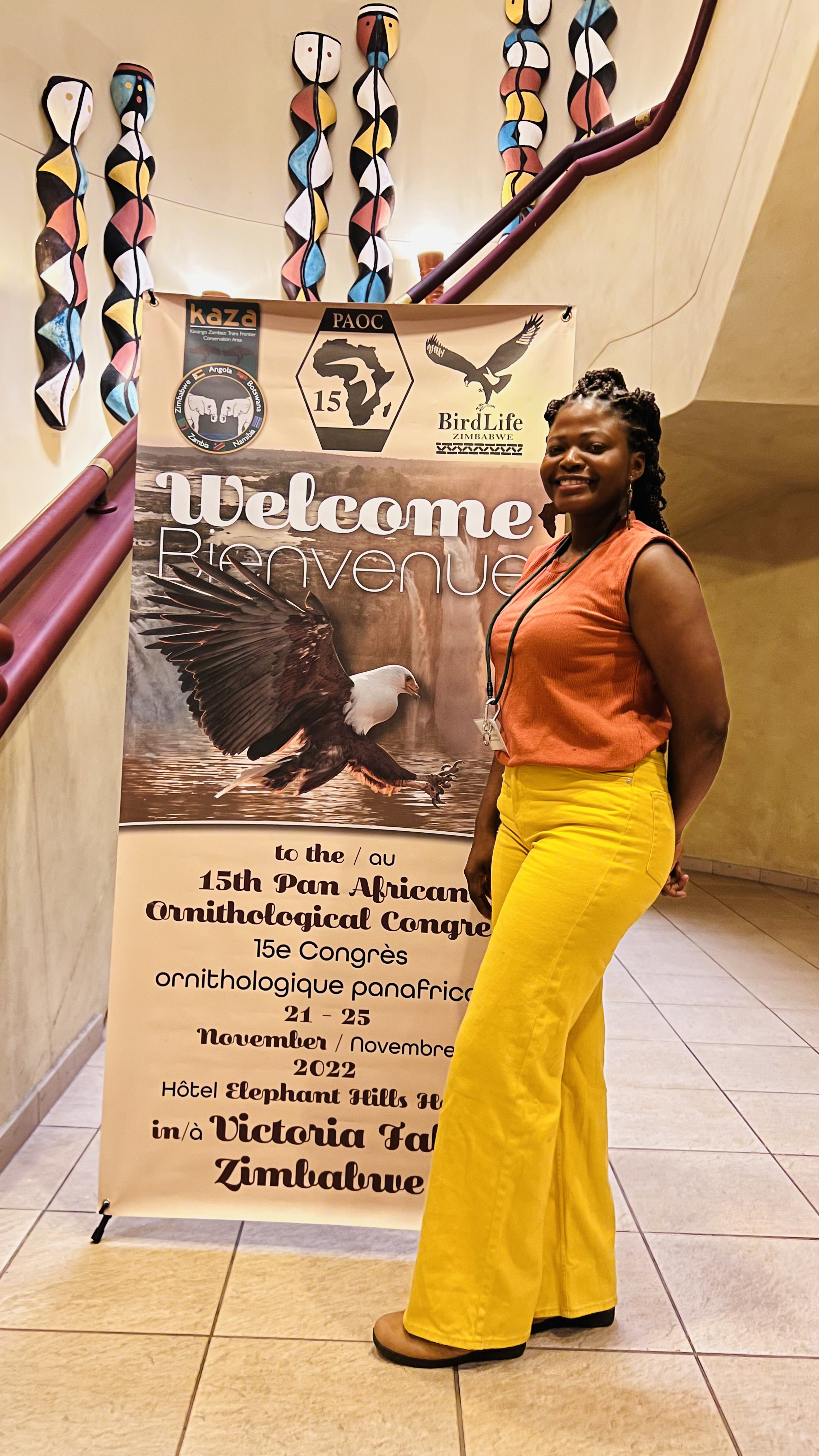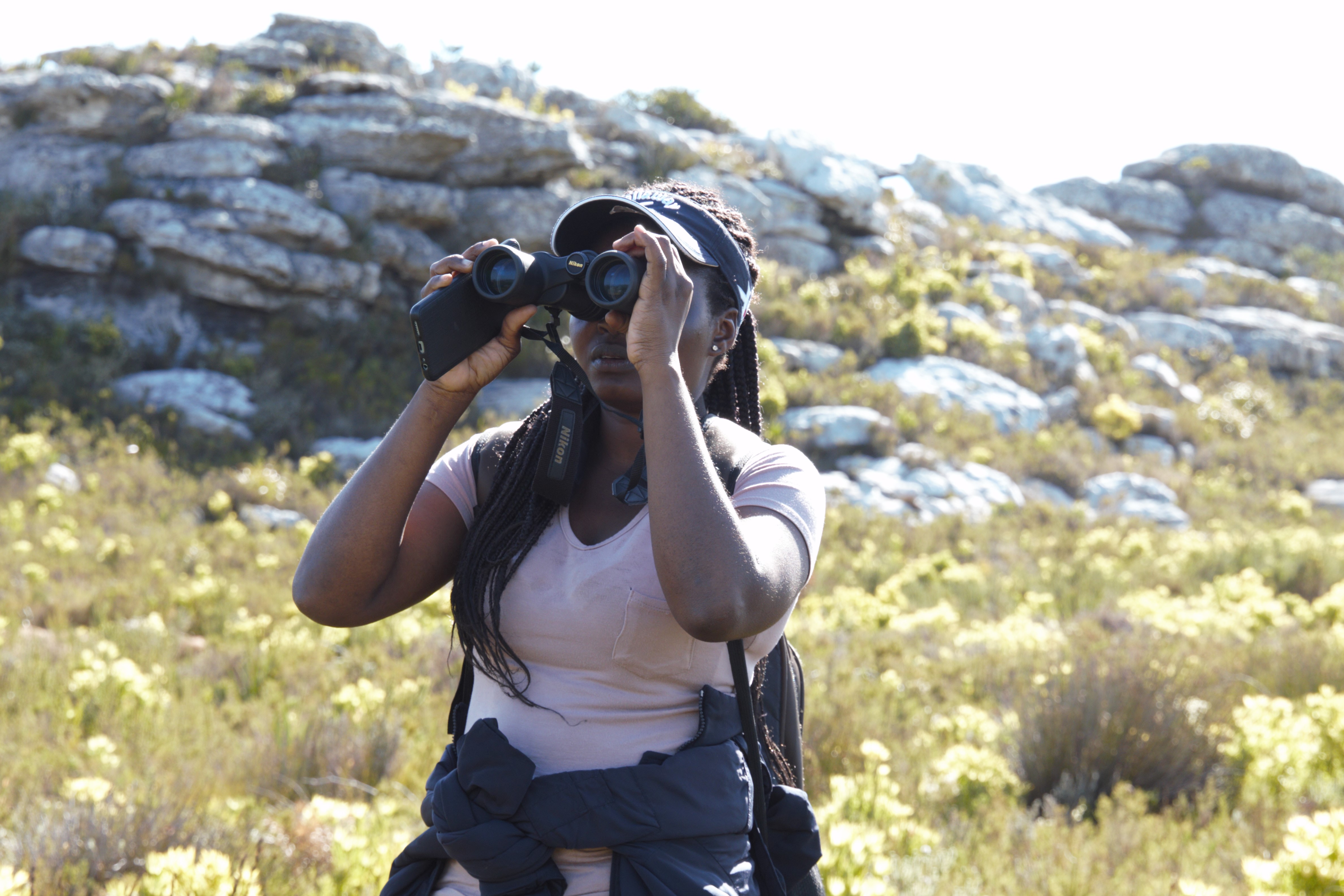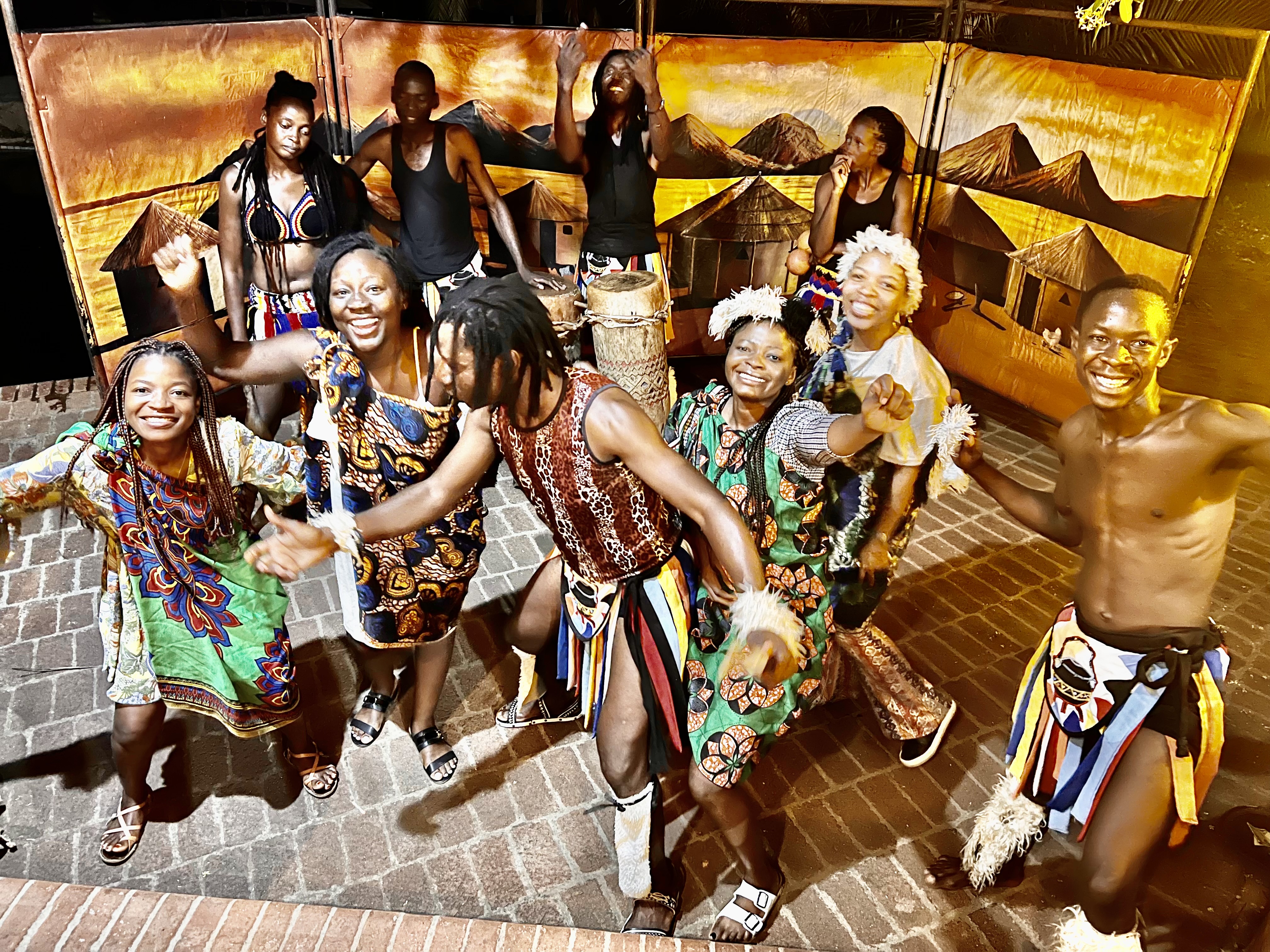The MLSG was able to fund six students/early career researchers to attend the PAOC15 in Victoria Falls in November 2022. These are their accounts of the experience.
By Temitope Rebecca Adelola (University of Cape Town, South Africa)
I was looking forward to the Pan-African Ornithological Congress 15 (PAOC15), which was held in Victoria Falls, Zimbabwe between November 21 and 25, 2022, after starting my first ornithological research experience at the University of Cape Town in South Africa. I must admit that the knowledge sharing, capacity building, networking, and cultural lifestyle experiences exceeded my expectations. The PAOC is held every four years and brings together hundreds of professionals and dedicated amateur ornithologists, including researchers, scientists, youth, NGOs, partners, and representatives from international organizations, to discuss various restoration, conservation, and sustainability research.

A flashback to the first time I used a binocular, I couldn't see properly through the lens, and after learning how to use it correctly, all I saw were beautiful birds, but I never understood what was more to their sustainability. Every bird seen through a lens is supported by an ecosystem (whether it is a forest, dry land, wetlands, or grassland), predators that threaten its survival, or environmental conditions that threaten its sustainability. The PAOC15 has helped me better understand the interactions of these species and their ecosystems, as well as various areas of research for their sustainability. "Birds are environmental indicators," says Roger Tory Peterson “If they're in trouble, we'll be in trouble soon." Hence, we all have a role in protecting the indicators of the environment that we love.

My background in forestry has been more of sustainable natural resource use, conservation, and community engagement, and my experience on the ground and volunteering engagement sparks my passion more for the understanding of species and their ecosystems, and I found birds interesting in connecting the dots for biodiversity conservation from science, communication, capacity building, and policy perspectives.
My master's research taught me more about invasive species and how, if not properly managed, they can endanger potentially vulnerable species and ecosystems, including their impacts on human well-being by causing economic damage. I was pleased to be able to link my research to the SDGs as well as the Convention on Biological Diversity's Goals and Indicators for Invasive Species. My research is on a native South African invader (the Pied Crow), and each experience has resulted in the development of a wide range of skills that will help me become more marketable.
I submitted the first chapter of my thesis, which was accepted for presentation at the PAOC15, and as a result, I became excited about the opportunities it offers.
My highlights from the PAOC 15
- Understanding Communication in Science
The PAOC helped me understand the importance of research communication in a way that is understandable to all and identifying missing links. According to Dr. Pioner Taashwa Gamundani's presentation, "dissemination of research findings is limited to academics and typically excludes those who influence habitats and species survival at a local scale" (policy makers, economics, business operators, government officials, and the individual). As a result, it is critical to communicate research findings in an easy-to-understand manner.
- Understanding the connectivity in research
My time at the PAOC has helped me better understand the connections between research areas. I've been exposed to a wide range of research areas for the long-term viability of our birds and their ecosystems, including, among other things, understanding the underlying causes of habitat change and its implications for migrant species, farming and biodiversity, developing a road map for migrant species, raptors conservation, and community engagement in conservation. And I'm confident in my Ph.D. research topic selection.
- Developing leaders with the right skills
By bringing in experts with experience, the POAC also hosts an early career session to understand the gaps. Most importantly, recognize the importance of soft skills in performing the required job. In addition to improving their access to funding, networking, career mentorship, and ensuring the long-term viability of the next generation of ornithologists. I had the opportunity to meet with mentors and network for opportunities during this session.
- Embrace cultural values and Lifestyles
The PAOC15 was truly equipped with a complete package, none of which left me bored. From the Victoria Fall Airport's welcoming dance and music, which was full of warmth and love in addition to the Boma drum show, which is one of the cultures I will always remember for having a great time.

There is always a return when we invest in nature. All the experiences were only possible due to Zimbabwe's national investment and commitment in biodiversity conservation, which included the creation of economic opportunities for locals for mutual benefit.
Thanks to the Migratory Land Bird Group for funding my participation in the PAOC15, and thank you Zimbabwe.

